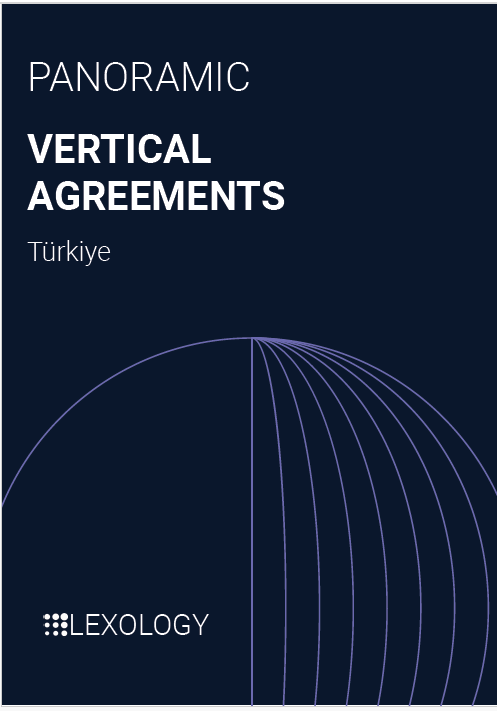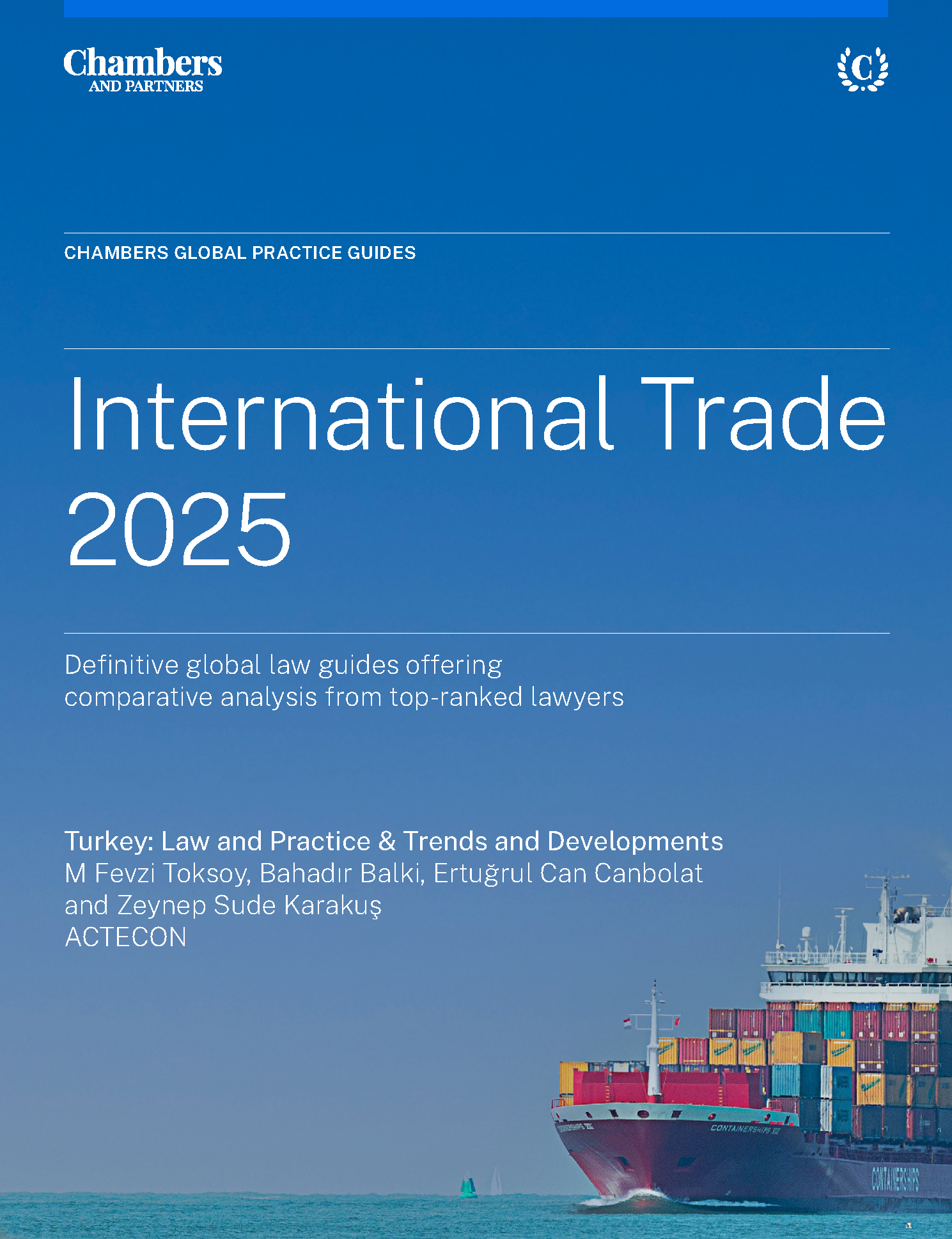A Record Fine Was Imposed by the Turkish Competition Authority on Four Major Players Operating in the Fuel Distribution Sector
| Competition Law

A Record Fine Was Imposed by the Turkish Competition Authority on Four Major Players Operating in the Fuel Distribution Sector
Article by Bahadır Balkı, Mustafa Ayna and Özlem Başıböyük
Introduction
In March 2020, the Turkish Competition Authority (“TCA”) imposed a hefty fine amounting to approximately TRY 1.5 billion in total (approx. EUR 170 million)[1] on four undertakings operating in the fuel distribution sector, namely BP Petrolleri A.Ş. (“BP”), OPET Petrolcülük A.Ş. (“OPET”), Petrol Ofisi A.Ş. (“PO”) and Shell & Turcas A.Ş. (“Shell”)[2][3]. The fine was based on the premises that the concerned undertakings violated Article 4 of the Law No. 4054 on the Protection of Competition (“Competition Law”) via the resale price maintenance practices which is often on the TCA’s agenda in the recent times.
On 21.09.2020, the TCA has published its reasoned decision on this case. When we take a glance at the details of its reasoning, as will be explained below, it seems that this decision may lead to heaty debates as to resale price maintenance practices as well as the size of the fine…
Background of the Decision
Back in 2018, an investigation had been initiated against the concerned undertakings in order to determine whether those forced their dealers to sell at the ceiling prices by intervening in the pump sales prices of their dealers. Güzel Enerji Akaryakıt A.Ş., formerly known as Total Oil Türkiye A.Ş. (“TOTAL”)[4], had also included to the investigation later.
It is widely accepted that determination of the price, which is one of the most important factors of competition, via resale price maintenance constitutes a competitive restraint. In this regard, such practices are considered as violation within the scope of Article 4 of the Competition Law and therefore cannot benefit the group exemption granted within the scope of the Block Exemption Communiqué No. 2002/2 on Vertical Agreements. However, the supplier may set maximum sales prices for the buyer or offer recommended sales prices to the buyer, provided these do not transform into fixed or minimum sales prices.
In this context, when the agreements and protocols signed between the parties to the investigation and their dealers are examined, it was determined that there is no provision in those that may cause the restriction of the dealers’ freedom in determining pump sales prices.
However, the TCA asserted that some documents and findings obtained during the on-the-spot inspections carried out at the premises of the concerned undertakings create suspicion that those undertakings determined the pump sales prices of their dealers. Furthermore, when (i) the ceiling prices notified to the Energy Market Regulatory Authority and their dealers by the concerned undertakings and (ii) minimum prices applied by their dealers are compared, it was determined that the pump sales prices of the dealers are highly equal to the recommended prices set by the concerned undertakings. In this regard, the TCA concluded that those undertakings violated Article 4 of the Competition Law via the resale price maintenance practices.
On the other hand, considering that;
- during the on-the-spot inspection carried out at TOTAL’s premises, no document or finding were obtained regarding that TOTAL determined the resale prices of its dealers and
- when (i) the ceiling prices notified to the Energy Market Regulatory Authority and its dealers by TOTAL and (ii) minimum prices applied by its dealers are compared, the pump sales prices of the dealers highly differ from the recommended prices set by TOTAL,
it was held that TOTAL did not violate Article 4 of the Competition Law by determining the resale price of its dealers.
Highlights of the Decision
First of the remarkable evaluations in the decision is related to the proof of whether the resale price maintenance is applied systematically. The TCA, in its precedents, has stated that there should a systematic practice in order to determine resale price[5]. Even though the concerned undertakings asserted that the existence of a systematic violation cannot be accepted based on limited findings, the TCA stated that the quality of the findings is of importance rather than the quantity. But, what should be understood from the quality was not fully explained; it was only stressed that the fact that most of the findings are the correspondences between the field managers revealed the importance of the findings.
Another issue included in the defences of the concerned undertakings is that the statement of “pump price” mentioned in the documents and findings actually mean the ceiling prices and this is a common mistake in terms of terminology in this sector. Nevertheless, this defence was not accepted by the TCA on the grounds that:
- In order to determine whether there is a terminology mistake, (i) the date when the ceiling prices notified to the dealer by BP and (ii) the date when pump selling prices were changed have been analysed. As a result of this analysis, it was determined that any ceiling price was not notified to the dealers in the period subject to examination. It reveals that the change in pump selling prices, mentioned in four documents obtained at BP, have stemmed from the interference of BP executives rather than the ceiling price changes.
- The two documents obtained at PO reveal that PO executives do not want the dealers to make discount on their pump selling prices on the price signboard. Indeed, it was determined that if the dealers reflect the said discounts on the signboard, PO executives have discussed with them to make the said discounts with the loyalty cards rather than showing the discounts on the price signboard.
- The resale price of the dealers was determined by Shell via changing the ceiling prices on the basis of dealer under the station-based ceiling sales price system. It was stated that with the station-based ceiling sales prices system, Shell aims to control the selling prices of each dealer. This situation reduces the incentives of the dealers to make discount on the pump selling price and thus it was considered that Shell indirectly determined the resale price of its dealers.
Furthermore, although the concerned undertakings put forward that there should be a mechanism which enable them to monitor the prices in order for their actions are deemed as resale price maintenance, the TCA stated that resale price maintenance practices will be more effective in case of such a mechanism but it is not considered as essential in terms of the violation determination regarding resale price maintenance.
Another issue open to discussion is the imposition of a fine on OPET, even though no document was obtained against it during on-the-spot inspection. As in the evaluations regarding BP, PO and Shell, the TCA also determined for OPET that when (i) the ceiling prices notified to the Energy Market Regulatory Authority and its dealers by OPET and (ii) minimum prices applied by its dealers are compared, the pump sales prices of the dealers are highly equal to the recommended prices set by OPET. In this regard, it was concluded that OPET violated Article 4 of the Competition Law based on the following consideration that;
- while this situation of OPET is quite similar to those of BP, PO and Shell,
- it is also quite different from TOTAL which no violation determination was made against it.
Finally, it should be noted that monetary administrative fine was calculated based on the concerned undertakings’ turnovers including SCT (special consumption tax) and therefore they have faced a quite hefty fine. Moreover, even though the fact that it is regulated sector has been considered as mitigating factor in the TCA’s past decisions[6], it was not taken into consideration in the case at hand. At this point, whether this high fine is proportionate is a separate topic open to discussion.
Concluding Remarks
To sum up, it is seen that the TCA has developed a presumption of the resale price maintenance. As a matter of fact, even though no finding was obtained regarding OPET during the on-the-spot inspections, the fact that (i) the pump sales prices of the dealers are highly equal to the recommended prices set by OPET and (ii) this situation is similar to those of other undertakings which violation determination was made against them have been deemed sufficient to find a violation. Whether the TCA will continue to apply this presumption in its future decision has become a curiosity.
At this stage, the concerned undertakings may bring an action for annulment before the Administrative Court within sixty days. Once this process is finalized, it will probably draw a well-defined framework as to resale price maintenance practices and bring some clarity to foregoing controversial issues in the world of competition law…
[1] The calculation are based on today’s exchange rate (28.09.2020; 1 EUR = 9.0268 TRY).
[2] The TCA’s decision dated 12.03.2020 and numbered 20-14/192-98.
[3] BP, OPET, PO and Shell are called as concerned undertakings in this article.
[4] BP, OPET, PO, Shell and TOTAL are called as the parties to the investigation in this article.
[5] Please see the TCA’s decision dated 16.11.2016 dated and numbered 16-39/659-294.
[6] Please see the TCA’s decision dated 09.01.2020 and numbered 20-03/28-12.







